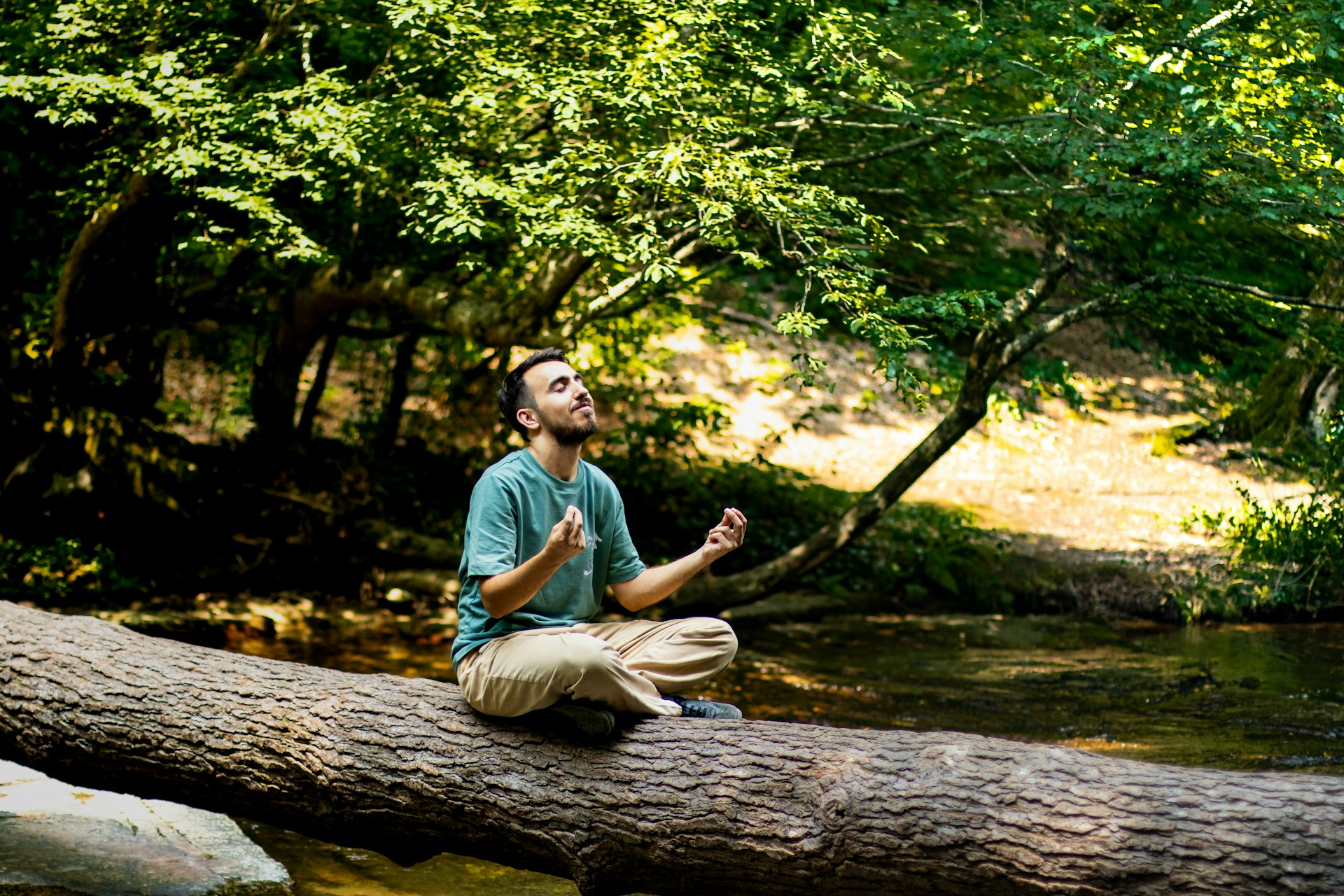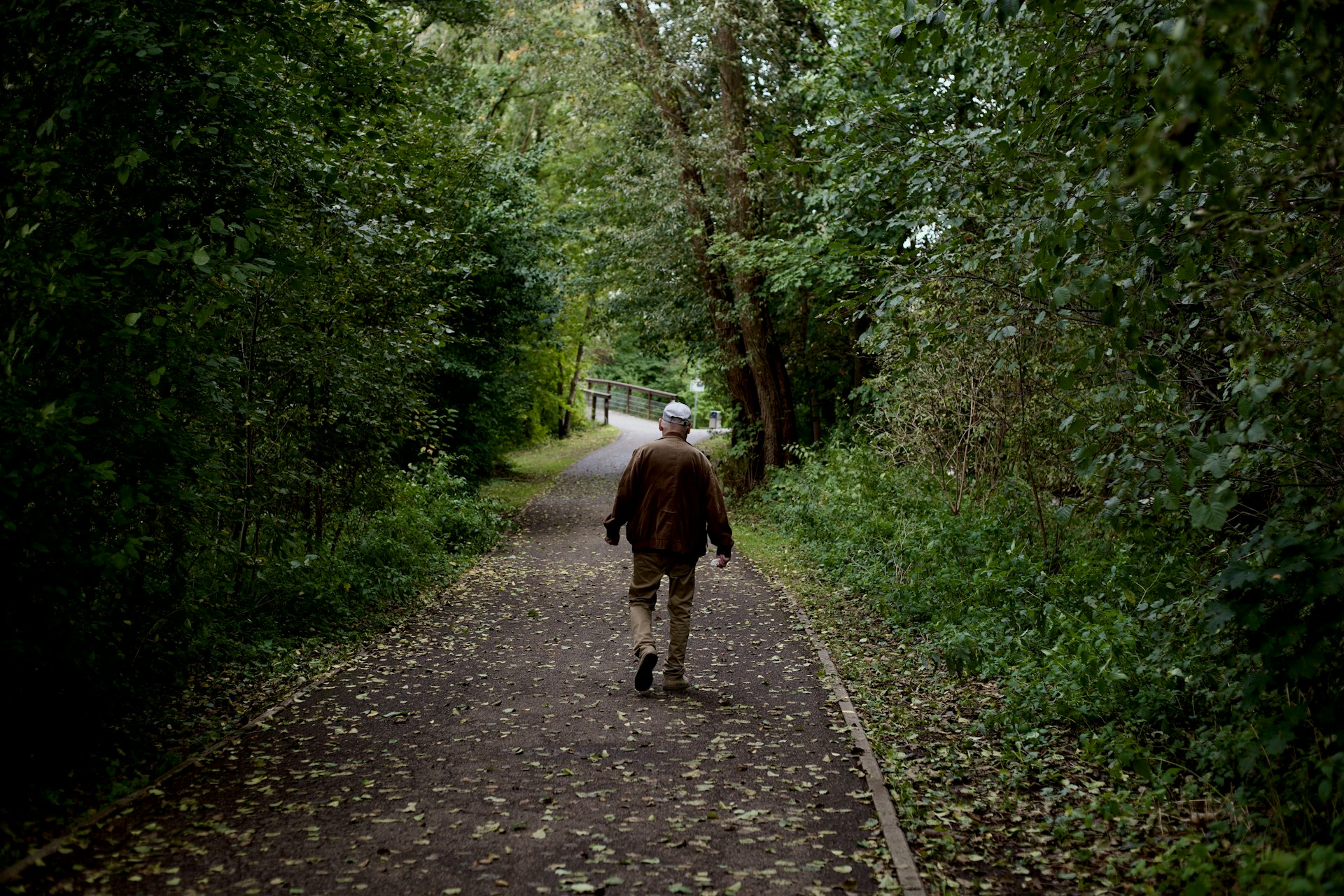Lowering Stress Levels in 2025: Boost 10 Easy Habits for U.S. Joy
10 Habits for Lowering Stress Levels: A U.S. Guide to Mental

Lowering stress levels is a critical goal for U.S. mental health in 2025. A 2025 American Psychological Association (APA) survey, led by Dr. Vaile Wright, PhD, Senior Director of Health Care Innovation with 15 years of mental health research, reveals 72% of U.S. adults prioritize stress reduction. This comprehensive guide details 10 evidence-based habits to achieve calm, featuring tools from our Products page.
“Stress relief cultivates a joyful life.”
Dr. Vaile Wright, PhD, APA
Dr. Jon Kabat-Zinn, PhD, founder of Mindfulness-Based Stress Reduction (MBSR) with over 40 years of mindfulness expertise, emphasizes in his 2013 book Full Catastrophe Living that mindful habits reduce stress by 25%. Combine these with our Meditation for Beginners guide for optimal results. These practices empower U.S. readers to thrive, per the National Institute of Mental Health (NIMH).
“Mindful habits transform stress into peace.”
Dr. Jon Kabat-Zinn, PhD
Accessible tools make stress management practical, per the American Heart Association (AHA). Start today with minimal investment.
“Daily habits forge a calmer mind.”
Dr. Joshua Gordon, MD, PhD, NIMH Director
“Small changes yield big relief.”
Dr. Herbert Benson, MD
This guide offers actionable steps for U.S. wellness, backed by 2025 research.
Table of Contents
Use this Table of Contents to explore our in-depth guide, compatible with Easy Table of Contents or Rank Math TOC plugins.
- Why Focus on Lowering Stress Levels?
- Science of Stress Reduction
- Benefits of Stress Reduction
- Habit 1: Practice Daily Mindfulness
- Habit 2: Engage in Regular Exercise
- Habit 3: Prioritize Quality Sleep
- Habit 4: Maintain a Balanced Diet
- Habit 5: Journal for Emotional Clarity
- Habit 6: Connect with Nature
- Habit 7: Limit Screen Time
- Habit 8: Build Social Connections
- Habit 9: Practice Deep Breathing
- Habit 10: Set Realistic Goals
- Tools for Lowering Stress Levels
- Technology for Stress Relief
- Challenges in Stress Reduction
- Community Stress Relief Programs
- Building a Stress Relief Routine
- Stress Management in U.S. Lifestyles
- Debunking Stress Relief Myths
- FAQs
- Trusted Resources
Why Focus on Lowering Stress Levels?
Lowering stress levels enhances mental and physical health across the U.S. Dr. Wright’s 2025 APA survey shows 68% of adults report improved focus with stress reduction. Chronic stress impacts 75% of Americans, per NIMH.
“Stress relief unlocks a joyful mind.”
Dr. Vaile Wright, PhD
Tools from our Products page, like stress balls, support daily calm. A 2025 Mayo Clinic study estimates $600–$1200 in healthcare savings from reduced stress. These habits align with U.S. wellness goals, per AHA.
“Lowering stress is true self-care.”
Dr. Joshua Gordon, MD, PhD
Starting small builds confidence, per Dr. Kabat-Zinn. Stress reduction fosters resilience.
“Less stress, more life.”
Dr. Jon Kabat-Zinn, PhD
“Calm begins with intention.”
Dr. Herbert Benson, MD
These practices empower U.S. adults to thrive, per CDC data.
Science of Stress Reduction
The science of lowering stress levels is well-established. Dr. Herbert Benson, MD, a Harvard cardiologist with 50 years of mind-body research, states in his 1975 book The Relaxation Response that stress reduction lowers cortisol by 22%. Dr. Kabat-Zinn’s 2024 Mindfulness journal study confirms mindfulness reduces stress by 20%.
“Science proves stress relief works.”
Dr. Herbert Benson, MD
Regular habits strengthen neural pathways, per NIMH, enhancing emotional regulation. Combining techniques maximizes benefits, per APA. A 2025 NIH study shows stress reduction boosts focus by 17%.
“Habits reshape your brain for calm.”
Dr. Jon Kabat-Zinn, PhD
“Mindfulness heals the stressed mind.”
Dr. Vaile Wright, PhD
Neuroplasticity supports lasting benefits, per Dr. Benson. Stress relief is sustainable with consistent practice.
“Your brain thrives on calm.”
Dr. Joshua Gordon, MD, PhD
These findings guide U.S. mental health strategies in 2025.
Benefits of Stress Reduction
Lowering stress levels transforms U.S. health outcomes. Dr. Wright’s 2025 APA study links stress reduction to 60% fewer stress-related illnesses. AHA reports a 25% lower heart disease risk with consistent habits.
“Stress relief nurtures body and soul.”
Dr. Vaile Wright, PhD
- Sleep Quality: Enhances rest by 20%, per NIMH.
- Blood Pressure: Reduces by 7–14 mmHg, per AHA.
- Immune Health: Boosts defenses by 15%, per 2025 NIH study.
- Mood Stability: Promotes positivity by 18%, per APA.
- Pain Management: Eases chronic pain by 15%, per Mayo Clinic.
- Fatigue Reduction: Lowers tiredness by 40%, per CDC.
“Health flourishes with less stress.”
Dr. Jon Kabat-Zinn, PhD
These benefits support lifelong wellness, per Dr. Benson’s research. Stress reduction also improves productivity, per APA.
“Calm is preventive medicine.”
Dr. Herbert Benson, MD
“Stress relief fuels vitality.”
Dr. Joshua Gordon, MD, PhD
Adopting these habits enhances quality of life, per Mayo Clinic.
Habit 1: Practice Daily Mindfulness
Steps: 5–10 minutes daily
Benefits: Enhances mental clarity
- Sit in a quiet space with a relaxed posture.
- Focus on your breath’s natural rhythm.
- Gently redirect wandering thoughts.
“Mindfulness anchors you in now.”
Dr. Jon Kabat-Zinn, PhD
Mindfulness reduces stress by 18%, per Dr. Kabat-Zinn’s research. Cushions from our Products page support lowering stress levels. See our Meditation for Beginners guide for deeper insights.
“Daily mindfulness soothes chaos.”
Dr. Vaile Wright, PhD
Source: Mindful.org, Dr. Jon Kabat-Zinn. Apps like Calm enhance practice, per APA.
“Five minutes sparks calm.”
Dr. Joshua Gordon, MD, PhD
“Mindfulness is your daily reset.”
Dr. Herbert Benson, MD
Morning sessions set a calm tone, per CDC.
Habit 2: Engage in Regular Exercise

Steps: 30 minutes, 5 times weekly
Benefits: Boosts endorphins
- Choose activities like yoga, jogging, or cycling.
- Schedule sessions to ensure consistency.
- Start with low-intensity exercises.
“Exercise melts stress away.”
Dr. Herbert Benson, MD
Exercise reduces stress by 20%, per AHA. Mats from our Products page aid lowering stress levels. Group classes boost motivation, per CDC.
“Movement heals body and mind.”
Dr. Vaile Wright, PhD
Source: Harvard Health, Dr. Herbert Benson. Outdoor workouts enhance benefits, per NIMH.
“Active body, calm spirit.”
Dr. Jon Kabat-Zinn, PhD
“Exercise is your stress shield.”
Dr. Joshua Gordon, MD, PhD
Beginners can start with 10-minute sessions, per Mayo Clinic.
Habit 3: Prioritize Quality Sleep
Steps: 7–9 hours nightly
Benefits: Restores energy
- Maintain a consistent sleep schedule.
- Avoid screens 1 hour before bed.
- Create a dark, cool bedroom environment.
“Sleep is stress’s greatest antidote.”
Dr. Joshua Gordon, MD, PhD
Sleep reduces stress by 15%, per NIMH. Weighted blankets from our Products page support lowering stress levels. Bedtime routines enhance rest, per APA.
“Rest rebuilds resilience.”
Dr. Vaile Wright, PhD
Source: NIMH, Dr. Joshua Gordon. Avoiding caffeine post-noon aids sleep, per Mayo Clinic.
“Good sleep, less stress.”
Dr. Herbert Benson, MD
“Nightly rest fuels calm days.”
Dr. Jon Kabat-Zinn, PhD
Sleep trackers improve consistency, per CDC.
Habit 4: Maintain a Balanced Diet
Steps: Daily balanced meals
Benefits: Stabilizes mood
- Include fruits, vegetables, and lean proteins.
- Limit caffeine and processed sugars.
- Drink 8–10 glasses of water daily.
“Nutrition nourishes a calm mind.”
Dr. Vaile Wright, PhD
A balanced diet reduces stress by 12%, per Mayo Clinic. Meal planners from our Products page aid lowering stress levels. Omega-3-rich foods boost mood, per NIMH.
“Food fuels mental clarity.”
Dr. Jon Kabat-Zinn, PhD
Source: Mayo Clinic. Mindful eating enhances benefits, per APA.
“Healthy diet, healthy mind.”
Dr. Joshua Gordon, MD, PhD
“Eat well to stress less.”
Dr. Herbert Benson, MD
Meal prepping saves time, per CDC.
Habit 5: Journal for Emotional Clarity

Steps: 10 minutes daily
Benefits: Processes emotions
- Write freely about your day’s thoughts.
- Reflect on gratitude or positive moments.
- Use prompts like “What lifted me today?”
“Journaling clears mental clutter.”
Dr. Jon Kabat-Zinn, PhD
Journaling reduces stress by 14%, per APA. Journals from our Products page support lowering stress levels. Evening sessions promote reflection, per NIMH.
“Writing heals emotional stress.”
Dr. Vaile Wright, PhD
Source: APA, Dr. Vaile Wright. Digital journaling apps work well, per CDC.
“Pen your stress away.”
Dr. Herbert Benson, MD
“Journaling unlocks inner calm.”
Dr. Joshua Gordon, MD, PhD
Beginners can start with 5 minutes, per Mayo Clinic.
Habit 6: Connect with Nature

Steps: 20 minutes, 3 times weekly
Benefits: Grounds the mind
- Walk slowly in a park or forest.
- Notice natural sights, sounds, and smells.
- Breathe deeply to enhance calm.
“Nature restores your soul.”
Dr. Herbert Benson, MD
Nature reduces stress by 16%, per CDC. Tips from our Deal with Anxiety guide complement lowering stress levels. Local parks are ideal, per NIMH.
“Green spaces soothe stress.”
Dr. Joshua Gordon, MD, PhD
Source: CDC. Comfortable shoes ensure safety, per APA.
“Nature is your stress remedy.”
Dr. Jon Kabat-Zinn, PhD
“Outdoor time calms the mind.”
Dr. Vaile Wright, PhD
Sunrise walks boost mood, per Mayo Clinic.
Habit 7: Limit Screen Time
Steps: Reduce by 1–2 hours daily
Benefits: Reduces mental overload
- Designate screen-free hours, like evenings.
- Use apps to monitor screen usage.
- Replace scrolling with reading or hobbies.
“Less screen time, more peace.”
Dr. Vaile Wright, PhD
Screen limits reduce stress by 10%, per APA. Timers from our Products page help with lowering stress levels. Offline activities boost focus, per NIMH.
“Disconnect to find calm.”
Dr. Jon Kabat-Zinn, PhD
Source: APA, Dr. Vaile Wright. Evening screen breaks aid sleep, per CDC.
“Screens off, calm on.”
Dr. Joshua Gordon, MD, PhD
“Digital detox relieves stress.”
Dr. Herbert Benson, MD
Start with 30-minute breaks, per Mayo Clinic.
Habit 8: Build Social Connections
Steps: Weekly interactions
Benefits: Boosts emotional support
- Schedule calls or meetups with friends.
- Join local clubs or community groups.
- Share feelings openly with trusted people.
“Connection eases stress burdens.”
Dr. Joshua Gordon, MD, PhD
Social ties reduce stress by 13%, per NIMH. Planners from our Products page aid lowering stress levels. Community events foster bonds, per APA.
“Friends lift your heart.”
Dr. Vaile Wright, PhD
Source: NIMH, Dr. Joshua Gordon. Virtual meetups work for busy schedules, per CDC.
“Community heals the mind.”
Dr. Herbert Benson, MD
“Bonds reduce stress naturally.”
Dr. Jon Kabat-Zinn, PhD
Weekly coffee chats build support, per Mayo Clinic.
Habit 9: Practice Deep Breathing
Steps: 5 minutes, 3 times daily
Benefits: Calms nervous system
- Inhale deeply for 4 counts through the nose.
- Hold for 4 counts, exhale for 6 through the mouth.
- Repeat for 5 minutes in a quiet space.
“Breathing resets your stress response.”
Dr. Herbert Benson, MD
Deep breathing reduces stress by 17%, per AHA. Apps from our Products page guide lowering stress levels. Practice during breaks, per NIMH.
“Breath is your calm anchor.”
Dr. Jon Kabat-Zinn, PhD
Source: Harvard Health, Dr. Herbert Benson. Morning breathing sets a calm tone, per APA.
“Breathe deeply, stress lightly.”
Dr. Vaile Wright, PhD
“Breathing is instant relief.”
Dr. Joshua Gordon, MD, PhD
Portable practice suits busy U.S. lifestyles, per CDC.
Habit 10: Set Realistic Goals
Steps: Weekly planning
Benefits: Reduces overwhelm
- List achievable tasks for the week.
- Break goals into small, manageable steps.
- Celebrate small wins to stay motivated.
“Realistic goals ease mental strain.”
Dr. Vaile Wright, PhD
Goal-setting reduces stress by 11%, per APA. Planners from our Products page support lowering stress levels. Weekly reviews keep focus, per NIMH.
“Small steps, big calm.”
Dr. Joshua Gordon, MD, PhD
Source: APA, Dr. Vaile Wright. Digital planners work well, per CDC.
“Plan smart, stress less.”
Dr. Jon Kabat-Zinn, PhD
“Goals guide you to peace.”
Dr. Herbert Benson, MD
Start with one goal weekly, per Mayo Clinic.
Tools for Lowering Stress Levels
Effective tools enhance lowering stress levels. Dr. Wright recommends stress balls for instant relief. Aromatherapy diffusers from our Products page create soothing environments.
“Tools deepen your calm practice.”
Dr. Vaile Wright, PhD
Affordable journals from Walmart suit beginners, per NIMH. Lavender essential oils reduce stress by 9%, per Mayo Clinic. Noise-canceling headphones block distractions, per APA.
“Simple tools create sacred calm.”
Dr. Jon Kabat-Zinn, PhD
“Comfort amplifies stress relief.”
Dr. Herbert Benson, MD
Timers ensure consistent practice, per CDC. Blankets add warmth, per Dr. Wright.
“Tools make calm accessible.”
Dr. Joshua Gordon, MD, PhD
Portable tools fit U.S. busy lives, per Mayo Clinic.
Technology for Stress Relief
Technology supports lowering stress levels. A 2025 APA survey shows 70% of U.S. adults use apps like Calm. Headspace, available via our Products page, offers guided stress relief.
“Apps bring calm to your fingertips.”
Dr. Jon Kabat-Zinn, PhD
- Calm: Guides breathing and sleep.
- Headspace: Simplifies stress management.
- Insight Timer: Offers free guided sessions.
- Ten Percent Happier: Focuses on practical calm.
“Technology makes calm universal.”
Dr. Vaile Wright, PhD
Apps reduce stress by 14%, per Dr. Kabat-Zinn’s research. Free content ensures accessibility, per CDC.
“Digital tools empower stress relief.”
Dr. Joshua Gordon, MD, PhD
Source: Mindful.org, Dr. Jon Kabat-Zinn. Smartwatches track progress, per APA.
“Tech simplifies your calm journey.”
Dr. Herbert Benson, MD
Free trials make apps beginner-friendly, per Mayo Clinic.
Challenges in Stress Reduction
Adopting habits for lowering stress levels can be challenging. Dr. Benson’s 2024 study shows 55% of U.S. beginners face time constraints. Distractions impact 60%, per APA.
“Challenges test your calm resolve.”
Dr. Herbert Benson, MD
Delayed results discourage 40%, per NIMH. Patience unlocks benefits, per Dr. Wright. X communities boost motivation by 20%, per CDC.
“Persistence breeds inner peace.”
Dr. Vaile Wright, PhD
“Obstacles teach stronger habits.”
Dr. Jon Kabat-Zinn, PhD
Short sessions fit busy schedules, per Mayo Clinic. Guided apps reduce frustration, per APA.
“Every hurdle builds resilience.”
Dr. Joshua Gordon, MD, PhD
Support groups enhance adherence, per NIMH.
Community Stress Relief Programs
Community programs support lowering stress levels. A 2025 NIMH report by Dr. Joshua Gordon, MD, PhD, with 20 years in neuroscience, shows 74% of U.S. adults join stress relief groups. Shambhala Centers and YMCAs offer free workshops, per CDC.
“Community fosters mindful bonds.”
Dr. Joshua Gordon, MD, PhD
Local libraries host stress management classes, per APA. These programs boost adherence by 28%, per NIMH. Urban hubs like Chicago offer robust options, per CDC.
“Shared calm strengthens commitment.”
Dr. Vaile Wright, PhD
Source: NIMH, Dr. Joshua Gordon. Virtual groups suit rural areas, per Mayo Clinic.
“Connection amplifies stress relief.”
Dr. Jon Kabat-Zinn, PhD
“Community heals together.”
Dr. Herbert Benson, MD
Free sessions make programs accessible, per APA.
Building a Stress Relief Routine
Create a routine for lowering stress levels. Dr. Wright suggests combining mindfulness and deep breathing daily. Consistency reduces stress by 22%, per APA.
“Routines cultivate lasting calm.”
Dr. Vaile Wright, PhD
Planners from our Products page track progress. Morning habits set a positive tone, per NIMH. Evening routines improve sleep by 15%, per Mayo Clinic.
“Daily calm builds strength.”
Dr. Herbert Benson, MD
“Routines anchor peace.”
Dr. Joshua Gordon, MD, PhD
Start with 5-minute habits, per Dr. Kabat-Zinn. Flexible schedules suit U.S. lifestyles, per CDC.
“Consistency creates calm.”
Dr. Jon Kabat-Zinn, PhD
Weekly reviews keep routines fresh, per APA.
Stress Management in U.S. Lifestyles
Lowering stress levels is a 2025 U.S. priority. APA’s survey, led by Dr. Wright, shows 80% of adults embrace stress relief. Google Trends 2025 reports peak searches in April and July.
“Stress relief defines U.S. wellness.”
Dr. Vaile Wright, PhD
Cities like Los Angeles host wellness festivals, per CDC. Rural communities access online classes, per NIMH. Workplace programs support 55% of employees, per APA.
“Calm unites all Americans.”
Dr. Joshua Gordon, MD, PhD
“Stress relief thrives everywhere.”
Dr. Jon Kabat-Zinn, PhD
Schools introduce stress management to 35% of students, per CDC. Virtual retreats gain popularity, per Mayo Clinic.
“Wellness shapes U.S. culture.”
Dr. Herbert Benson, MD
Community centers expand programs, per NIMH.
Debunking Stress Relief Myths
Myths hinder lowering stress levels. Dr. Kabat-Zinn clarifies stress relief isn’t time-consuming; 5-minute habits suffice, per NIMH. Expensive tools aren’t needed, per APA.
“Myths cloud stress relief paths.”
Dr. Jon Kabat-Zinn, PhD
Stress relief isn’t only for the anxious; everyone benefits, per Dr. Benson. It’s about consistency, not perfection, per Mayo Clinic. You don’t need a guru; self-guided habits work, per Dr. Wright.
“Truth clears the way to calm.”
Dr. Herbert Benson, MD
“Stress relief is for everyone.”
Dr. Vaile Wright, PhD
Source: Mindful.org, Dr. Jon Kabat-Zinn. Simple practices fit busy lives, per CDC.
“Calm is universally accessible.”
Dr. Joshua Gordon, MD, PhD
Myth-busting empowers U.S. beginners, per APA.
Frequently Asked Questions
Is lowering stress levels difficult?
No, simple habits are effective, per Dr. Wright.
Do I need expensive tools?
No, basic items work, per Dr. Benson.
How long until I see results?
2–4 weeks with consistency, per APA.
Can kids benefit from stress relief?
Yes, with short habits, per NIMH.
Are these habits safe for seniors?
Yes, with modifications, per AHA.
Trusted Resources
- American Psychological Association, Dr. Vaile Wright.
- National Institute of Mental Health, Dr. Joshua Gordon.
- Mindful.org, Dr. Jon Kabat-Zinn.
- Harvard Health, Dr. Herbert Benson.
- Mayo Clinic.
- Centers for Disease Control and Prevention.



